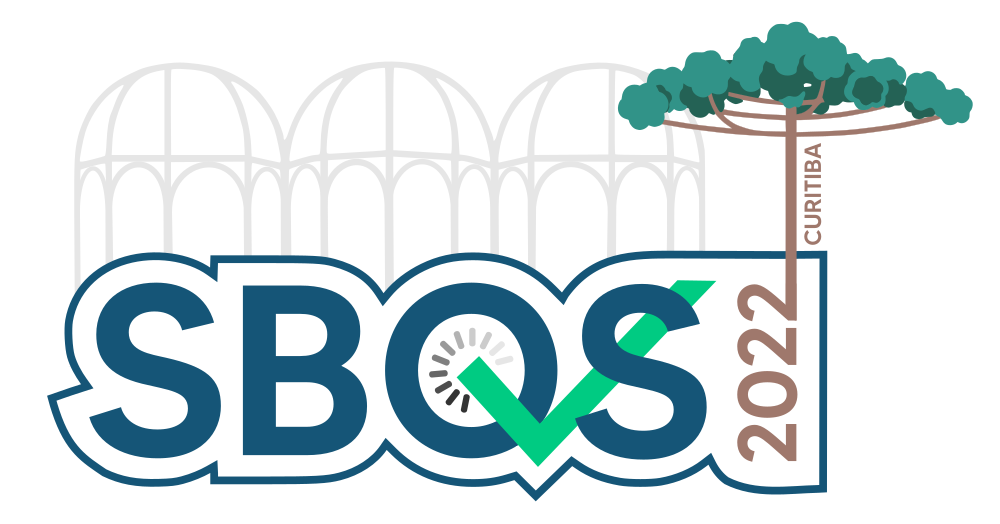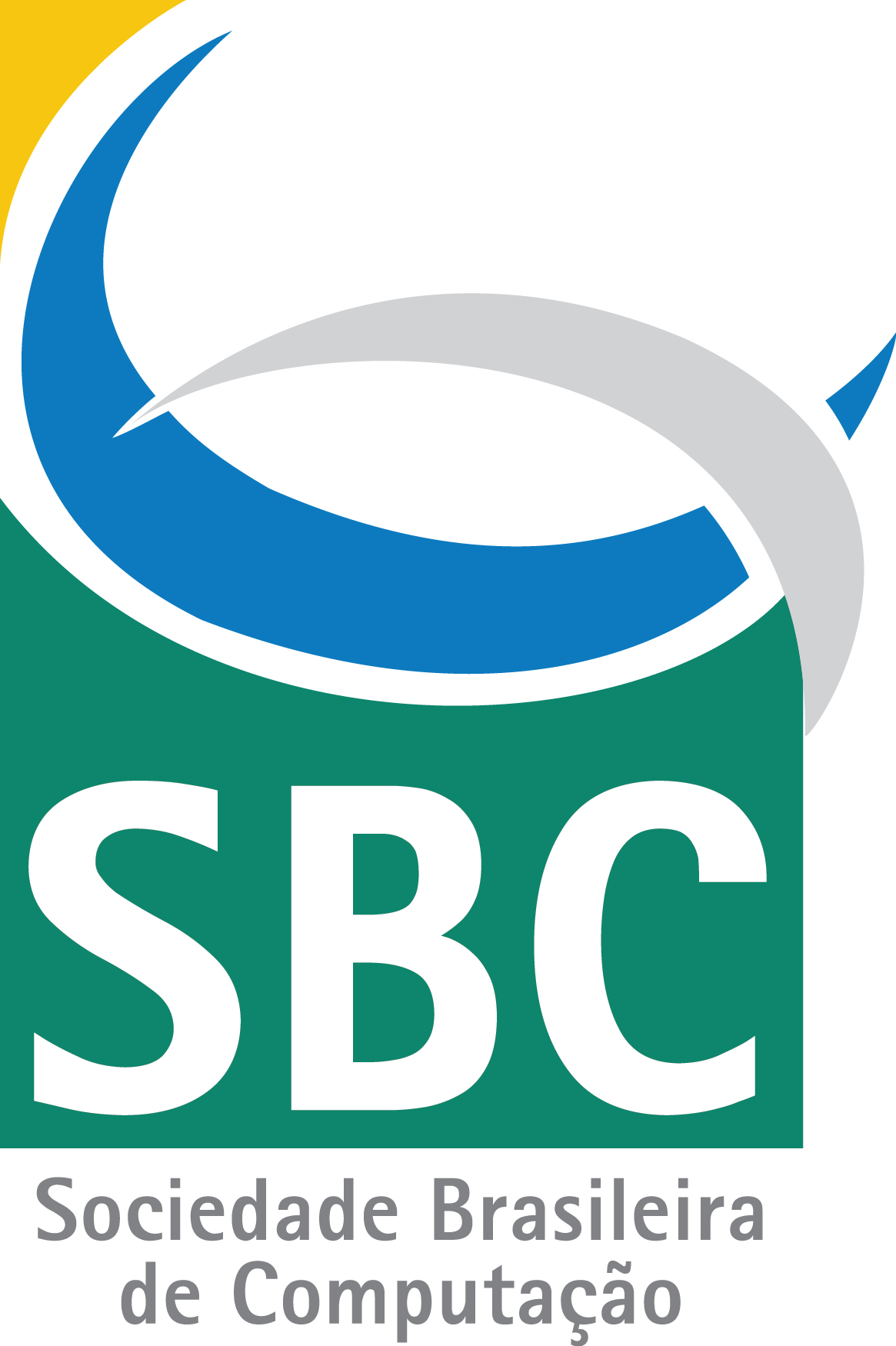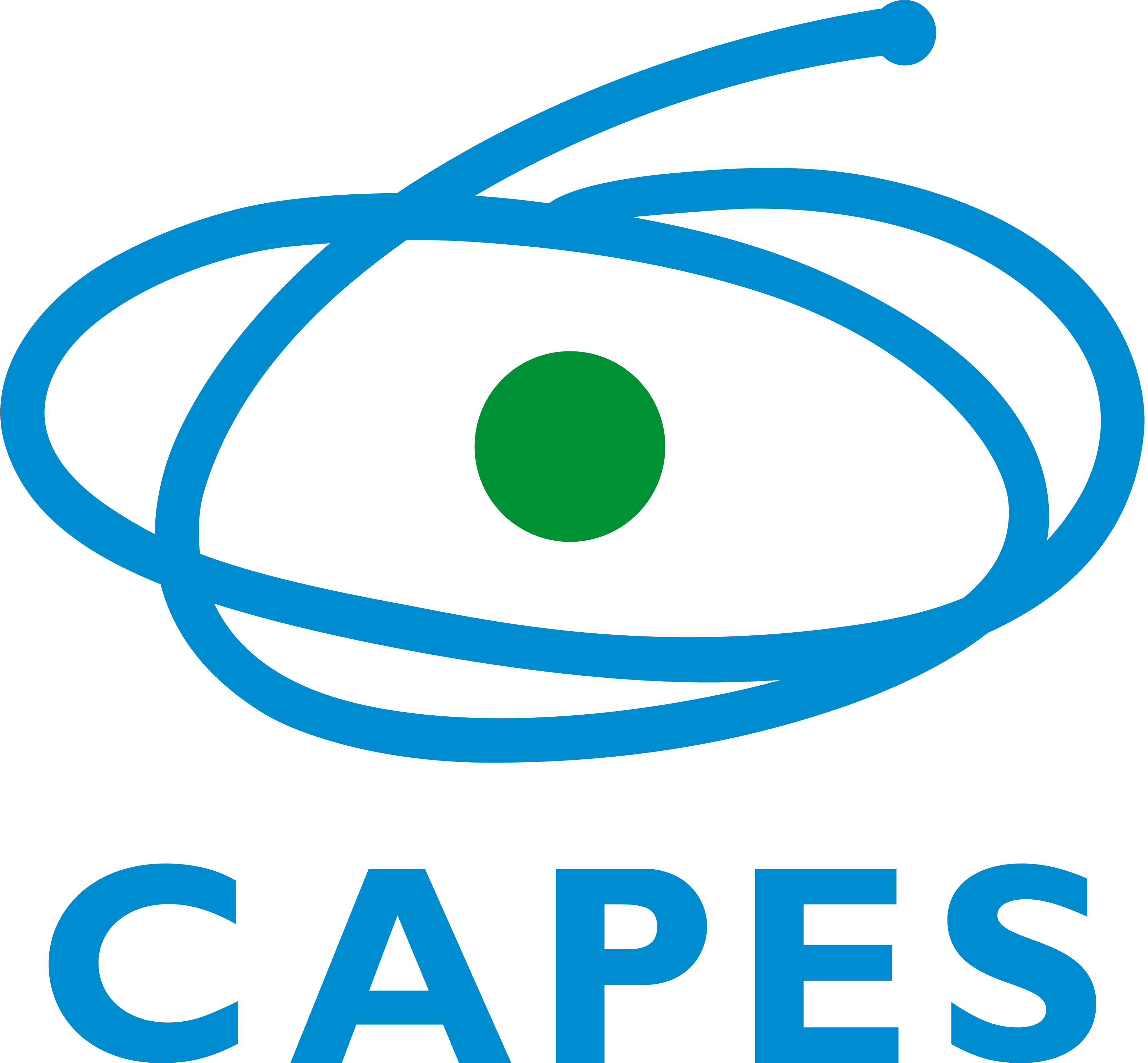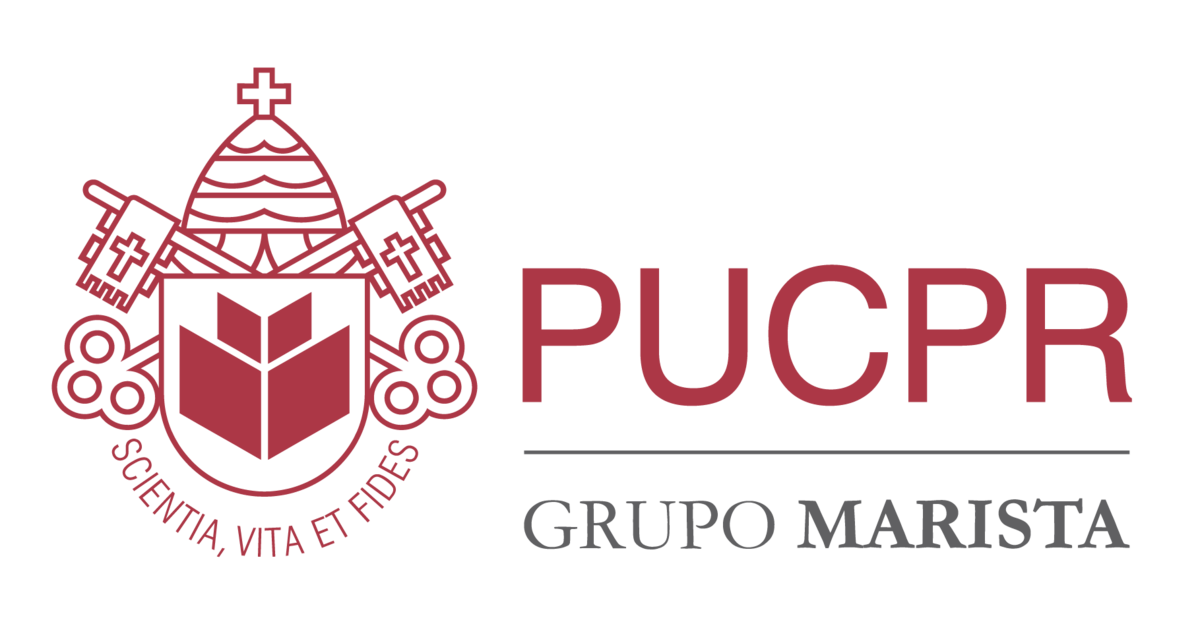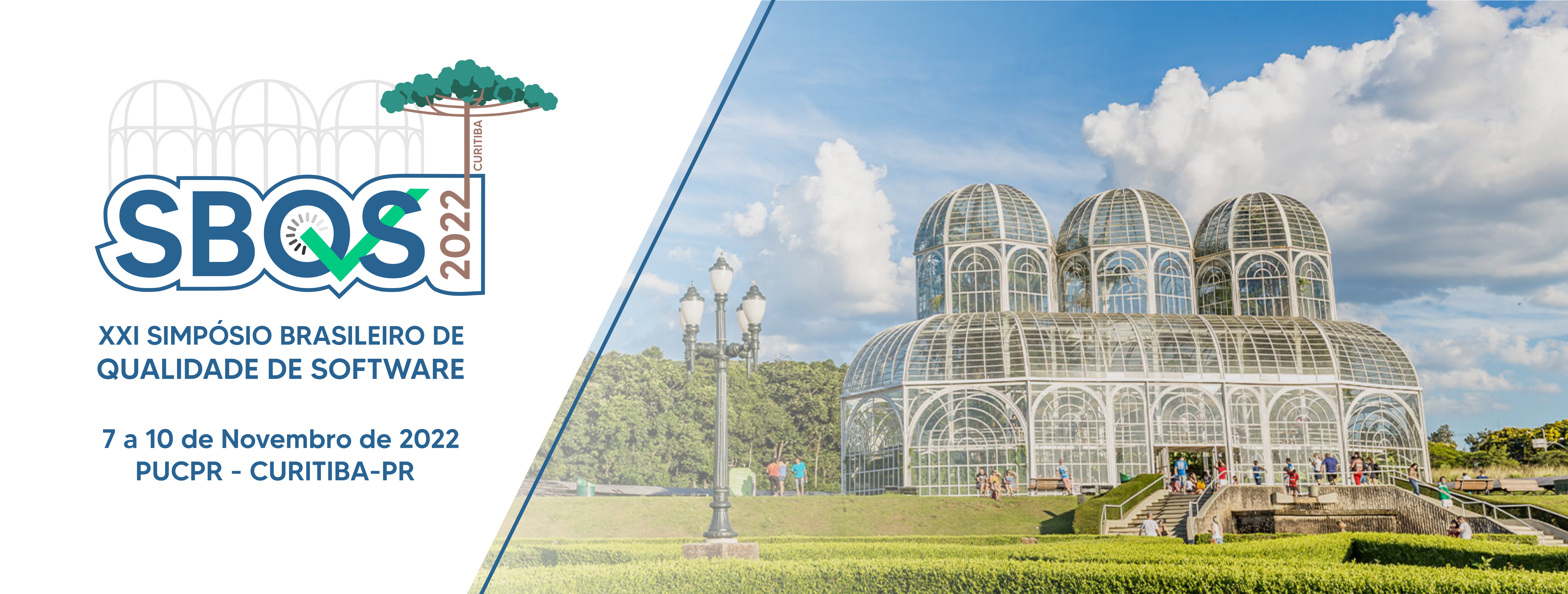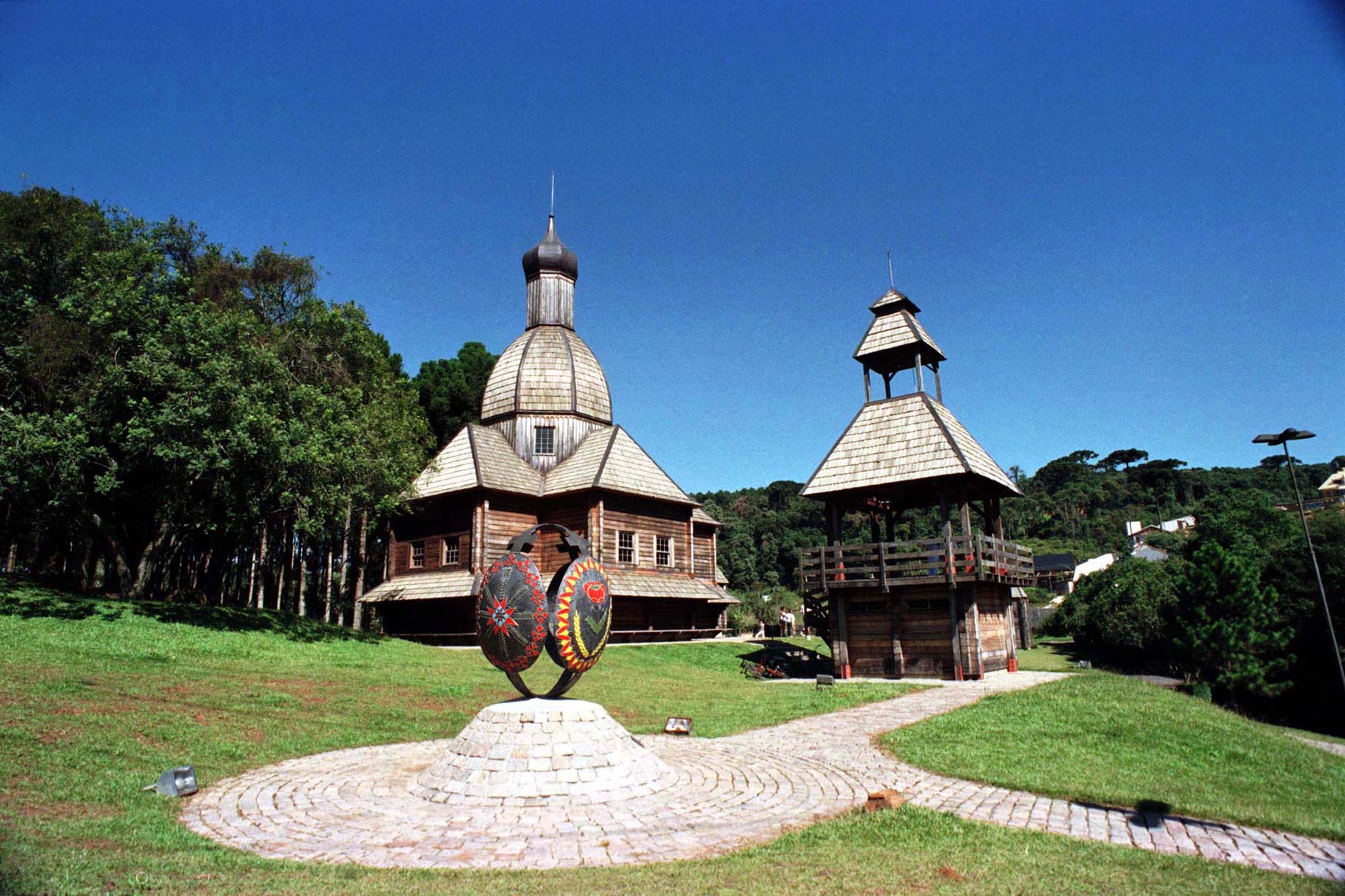CALL FOR PAPERS - RESEARCH TRACK
SBQS 2022: The 21th Brazilian Symposium on Software Quality
November 7th to 10th, 2022, Curitiba, Parana, Brazil
SBQS
The Brazilian Symposium on Software Quality (SBQS) is the main Brazilian forum dedicated to Software Quality. The quality of the software is manifested in two complementary and dependent aspects: Process Quality and Product Quality. With the current heavy reliance on software and aggregated services, research into software quality and its application in products and services is both a necessity and a differential to provide value to organizations and their businesses.
Since its creation, the SBQS has excelled by the exchange of experiences between academia and industry, where researchers, educators, and the Software Quality and Software Engineering practice community meet to present and discuss ideas, experiences, and discoveries with a view to with the potential to positively influence the software industry.
Aim and Scope
The focus of the Research Track is in high-quality technical work describing original and unpublished results related to Software Quality. Papers describing pioneering research results in the area of Software Quality with an academic contribution are expected. The papers may present conceptual, empirical, experimental or theoretical works. The SBQS encourages the publication of the evaluation and analysis of the results presented in the papers. Results obtained by means of experimental techniques, whether primary or secondary, and qualitative or quantitative analyses are welcome.
Topics of Interest
Submissions on all topics related to Software Quality are welcome. Topics of interest to the track include (but are not limited to):
- High Maturity and Statistical Process Control
- Acquisition of Software Products
- Acquisition of IT Services
- Process Evaluation
- Product Rating
- Requirements Engineering
- Human Factors and Social Aspects in Software Quality
- Quality Assurance of IT Services
- Software Quality Assurance
- Configuration Management
- Knowledge Management and Organizational Learning
- Portfolio and Project Management
- People Management
- Software Process Lines
- Software Product Lines
- Software Maintenance and Evolution
- Measurement and Analysis
- IT Service Process Improvement
- Software Process Improvement
- Agile Software Development Methods
- Process Modeling
- Models and Standards of Capacity and Maturity
- Software Processes, Methods, and Tools
- Design and Integration of Software and IT Services
- Quality of Software applied to IT Services
- Services and Software Reuse
- Usability and User Experience
- Value in Software Quality
- Verification, Validation, and Testing
Evaluation Criteria
Papers of this track will be evaluated considering their originality, relevance, technical solidity, and clarity of presentation.
Important Dates
- Paper registration (abstract submission): July 18th, 2022 July 25th, 2022 August 1st, 2022 (hard deadline)
- Paper submission: July 25th, 2022 August 1st, 2022 (hard deadline)
- Rebuttal period: August 29th to September 4th, 2022 September 6th to September 12th, 2022
- Notification of acceptance: September 17th, 2022 September 25th, 2022
- Camera-ready version: September 24th, 2022 October 2nd, 2022
Manuscript Preparation and Submission
All submissions must be in PDF format and must follow the two-column ACM format for conferences (Interim template), available in ACM SIG Proceedings Templates. The use of LaTex (sigconf) is strongly recommended. In this case, authors should use the acmart.cls class provided in the template with the conference format enabled in the preamble of the document: \documentclass[sigconf]{acmart} and also apply the ACM-Reference-Format.bst bibliography style provided in the template: \bibliographystyle{ACM-Reference-Format}.
If authors choose to use the Word format, they should be aware of the fact that the two-column version (Interim Template) must be used for the submission. However, this is an outdated version of the ACM and, if the paper is accepted, the authors will have to move to the new simple column format (ACM Primary Article Template - Microsoft Word: Mac 2011, Mac 2016 and Windows) and deal with macro errors when importing into the ACM system until the paper version is correct and validated.
Papers should not exceed 10 pages, including all figures, tables, appendices, references, and acknowledgments. Submissions should be made electronically through the JEMS system.
Papers should be written in Portuguese or English. Submissions in English are strongly encouraged. As in the last edition, the event proceedings will be indexed online.
Submissions that do not meet the required format or are outside the scope of the Research Track will be rejected without revision.
The paper review process includes a rebuttal period in which authors will have access to reviewers' comments and may present arguments and responses to comments and questions submitted by reviewers before the final decision to accept or reject the paper.
The acceptance of an paper implies that at least one of the authors must register to SBQS, including the respective publication fee(s), to present it during the event and that authors must provide extra files required by the general chair (for example, the previous presentation video following the requested format by SBQS). Additionally, for the purpose of speeding up the publication process, authors of accepted papers must fill some forms requested by the proceedings chair on specific dates.
Papers submitted to the Research Track must not have been simultaneously submitted to another forum (scientific event or journal), nor have they been previously published.
For details on submitting the other tracks, refer to the corresponding calls.
Best Paper Award
SBQS rewards the best paper of each track every year. The Track Chairs and SBQS Steering Committee will choose the winning papers from the Program Committee reviews. The award-winning papers are announced at the event.
Authors of the best papers are invited to submit extended versions for publication in a special issue of the Journal of Software Engineering Research and Development (JSERD).
JOURNAL FIRST
The SBQS is partnering with the international journal "Journal of Software Engineering Research and Development" (JSERD) to incorporate the journal's papers as Journal First into the SBQS 2022 Technical Program.
Authors of papers published recently in this journal that meet the evaluation criteria are being invited to present their research papers in the SBQS. This provides an opportunity for authors to discuss their work with the software quality community as well as enrich the SBQS technical program.
The following evaluation criteria will be used to select papers as Journal First in SBQS 2022:
- The paper should have been published at JSERD as: Research Paper, Case Study or Systematic Review;
- The paper describes original results that are not extensions of papers from previous conferences;
- The paper was accepted for publication in the journal before January 1st, 2022;
- The paper was not presented at any other conference such as Journal First;
- At least one of the authors of the selected paper as Journal First must register and attend SBQS 2022 to present it.
Authors interested in submitting an paper such as Journal First in SBQS 2022 need to send an email to the Program Co-Chairs - Edna Dias Canedo (This email address is being protected from spambots. You need JavaScript enabled to view it.) and Davi Viana (This email address is being protected from spambots. You need JavaScript enabled to view it.) - with the subject "Journal First - SBQS 2022" until June 31th, 2022. The following information should be provided: (i) title of the paper, (ii) list of authors, (iii) the link of the web page to access the paper; and (iv) a brief statement on how the work meets the above criteria.
Program Committee Co-Chairs - Research Track
Edna Dias Canedo (UnB)
Davi Viana (UFMA)
SBQS Steering Committee
Adriano Bessa Albuquerque (UNIFOR)
Gleison Santos (UNIRIO)
Ivan Machado (UFBA)
Monalessa Perini Barcellos (UFES)
Rodrigo Santos (UNIRIO)
Sheila Reinehr (PUCPR)
Tayana Conte (UFAM)
Proceedings Chair
Crescêncio Lima (IFBA)
Program Committee
Adenilso Simao (ICMC-USP)
Adriana Lopes (UFAM)
Alcemir Santos (Universidade Estadual do Piauí - UESPI)
Alexandre Vasconcelos (Universidade Federal de Pernambuco)
Alfredo Goldman (IME - USP)
Ana Oran (Universidade Federal do Amazonas)
Ana Regina Rocha (COPPE/UFRJ)
Anderson Belgamo (Instituto Federal de São Paulo - Campus Piracicaba)
André Luís Menolli (Universidade Estadual do Norte do Paraná - UENP)
Anna Beatriz Marques (Universidade Federal do Ceará)
Awdren Fontão (Universidade Federal do Mato Grosso do Sul)
Breno de França (UNICAMP)
Bruno Cafeo (Universidade Federal de Mato Grosso do Sul)
Bruno Gadelha (Universidade Federal do Amazonas)
Carla Bezerra (Universidade Federal do Ceará - UFC)
Crescencio Lima (Instituto Federal da Bahia)
Daniel Lucrédio (UFSCar - Universidade Federal de São Carlos)
Danilo Ribeiro (Zup Innovation)
Debora Paiva (Universidade Federal de Mato Grosso do Sul)
Edson Oliveira Jr (Universidade Estadual de Maringá(
Eliezer Dutra (CEFET/RJ)
Everton Alves (Universidade Federal de Campina Grande)
Fabiana Freitas Mendes (Universidade de Brasília)
Fernanda Madeiral KTH (Instituto Royal de Tecnologia)
Fernando Kamei (IFAL)
Giani Petri (Universidade Federal de Santa Maria 0UFSM)
Glauco Carneiro (Universidade Federal de Sergipe - UFS)
Gleison Santos (Unirio)
Heitor Costa (Universidade Federal de Lavras)
Henrique Sousa (Universidade Federal do Estado do Rio de Janeiro)
Hudson Borges (UFMS)
Ismayle Sousa Santos (Universidade Federal do Ceará)
Ivaldir Junior (Universidade de Pernambuco - UPE)
Ivan Machado (Universidade Federal da Bahia)
Johnny Marques (Instituto Tecnológico de Aeronáutica)
José Maldonado (SSC/ICMC-USP/ São Carlos)
Larissa Rocha Soares (Universidade Estadual de Feira de Santana)
Leonardo Medeiros (Instituto Federal de Alagoas)
Marcelo Yamaguti (PUCRS)
Marco Paludo (PUCPR - Pontifícia Universidade Católica do Paraná)
Marcos Kalinowski (PUC-Rio)
Monalessa Perini Barcellos (Universidade Federal do Espírito Santo)
Monica Anastassiu (Universidade Federal do Estado do Rio de Janeiro)
Natasha Valentim (Universidade Federal do Paraná)
Natália Chaves Lessa Schots (IM/UFRRJ)
Paulo Parreira Júnior (Universidade Federal de Lavras)
Paulo Sérgio Santos (Universidade Federal do Estado do Rio de Janeiro)
Rafael de Mello (UFRJ)
Rafael de Sousa Junior (Universidade de Brasilia)
Rafael Prikladnicki (PUCRS)
Raul Wazlawick (UFSC)
Regina Braga (Universidade Federal de Juiz de Fora)
Reginaldo Ré (Universidade Tecnológica Federal do Paraná)
Renato Novais (IFBA - Instituto Federal de Educação, Ciência e Tecnologia da Bahia)
Rita Suzana Pitangueira Maciel (Universidade Federal da Bahia)
Rodrigo Reis (UFPA)
Rodrigo Santos (UNIRIO)
Rossana Andrade (Universidade Federal do Ceará - UFC)
Sabrina Marczak (PUCRS)
Sandro Ronaldo Bezerra Oliveira (Universidade Federal do Pará)
Sergio Carvalho (Universidade Federal de Goiás - UFG)
Sheila Reinehr (Pontificia Universidade Católica do Paraná)
Suzana Sampaio (Universidade Federal Rural de Pernambuco)
Tadeu Classe (Universidade Federal do Estado do Rio de Janeiro)
Tayana Conte (UFAM)
Thelma Colanzi (Universidade Estadual de Maringá)
Uirá Kulesza UFRN - (Universidade Federal do Rio Grande do Norte)
Valéria Lelli (Universidade Federal do Ceará)
Valdemar Vicente Graciano Neto (Universidade Federal de Goiás)
Vânia Neves (Universidade Federal Fluminense)
Vinicius Durelli (Universidade Federal de São João del Rei)
Vinicius Garcia (Universidade Federal de Pernambuco)
Wesley Assunção (PUC-Rio)

